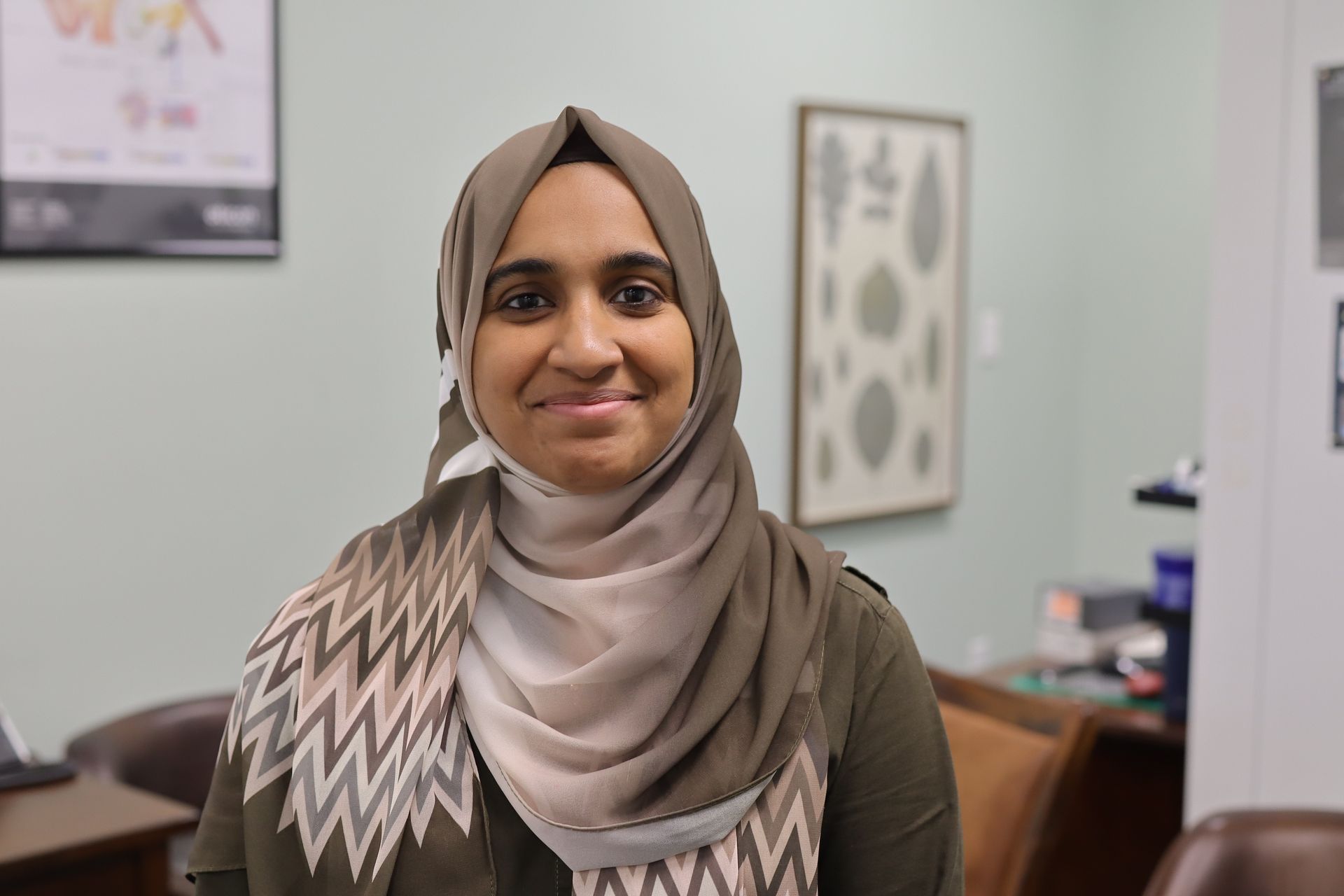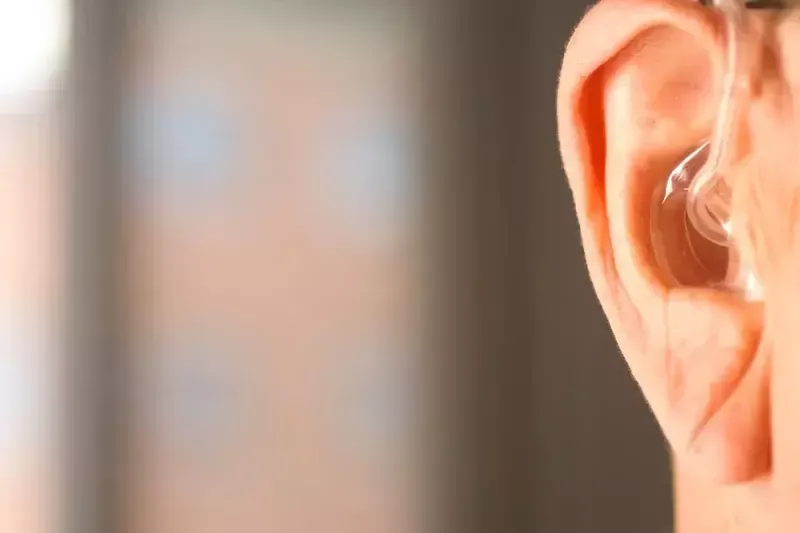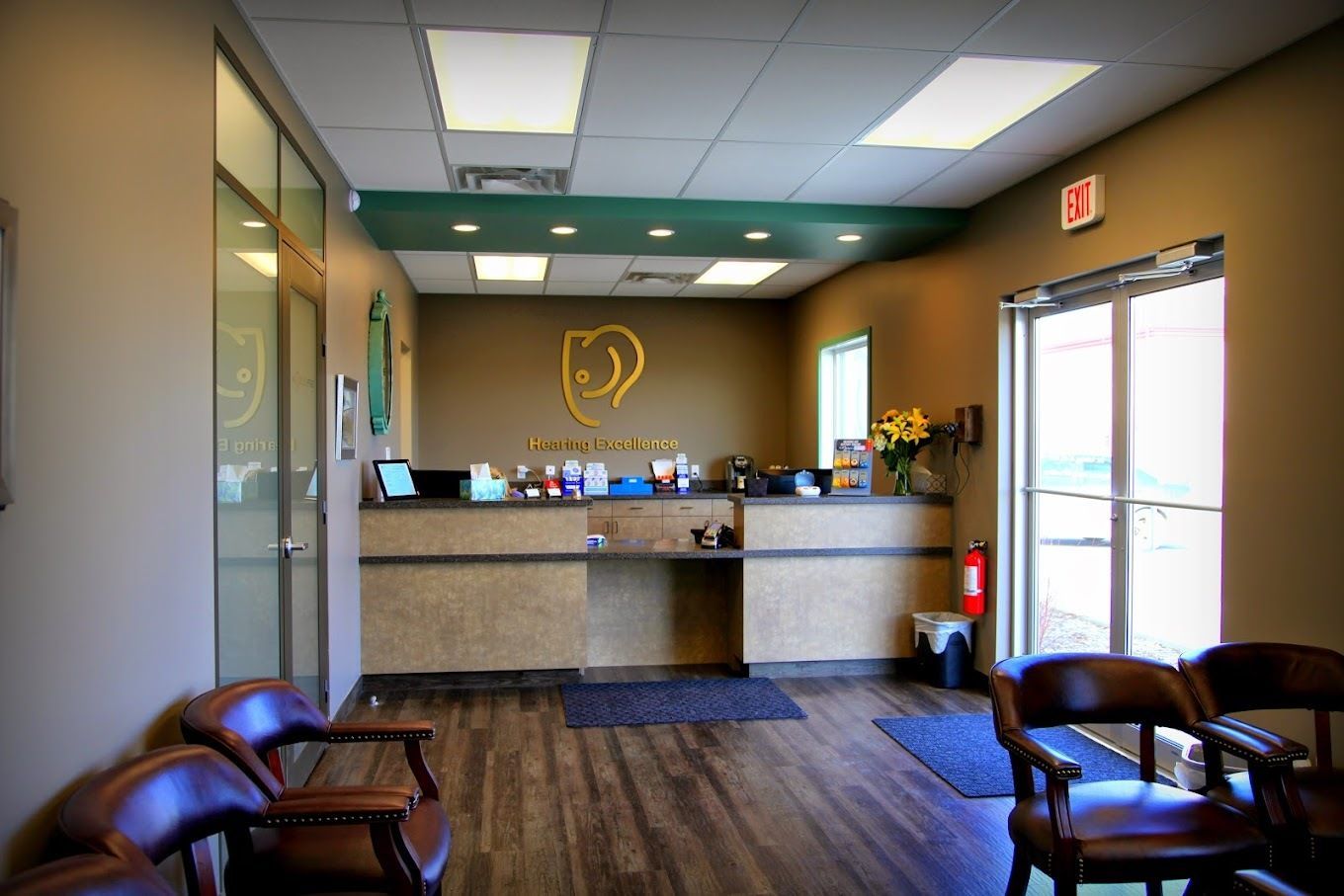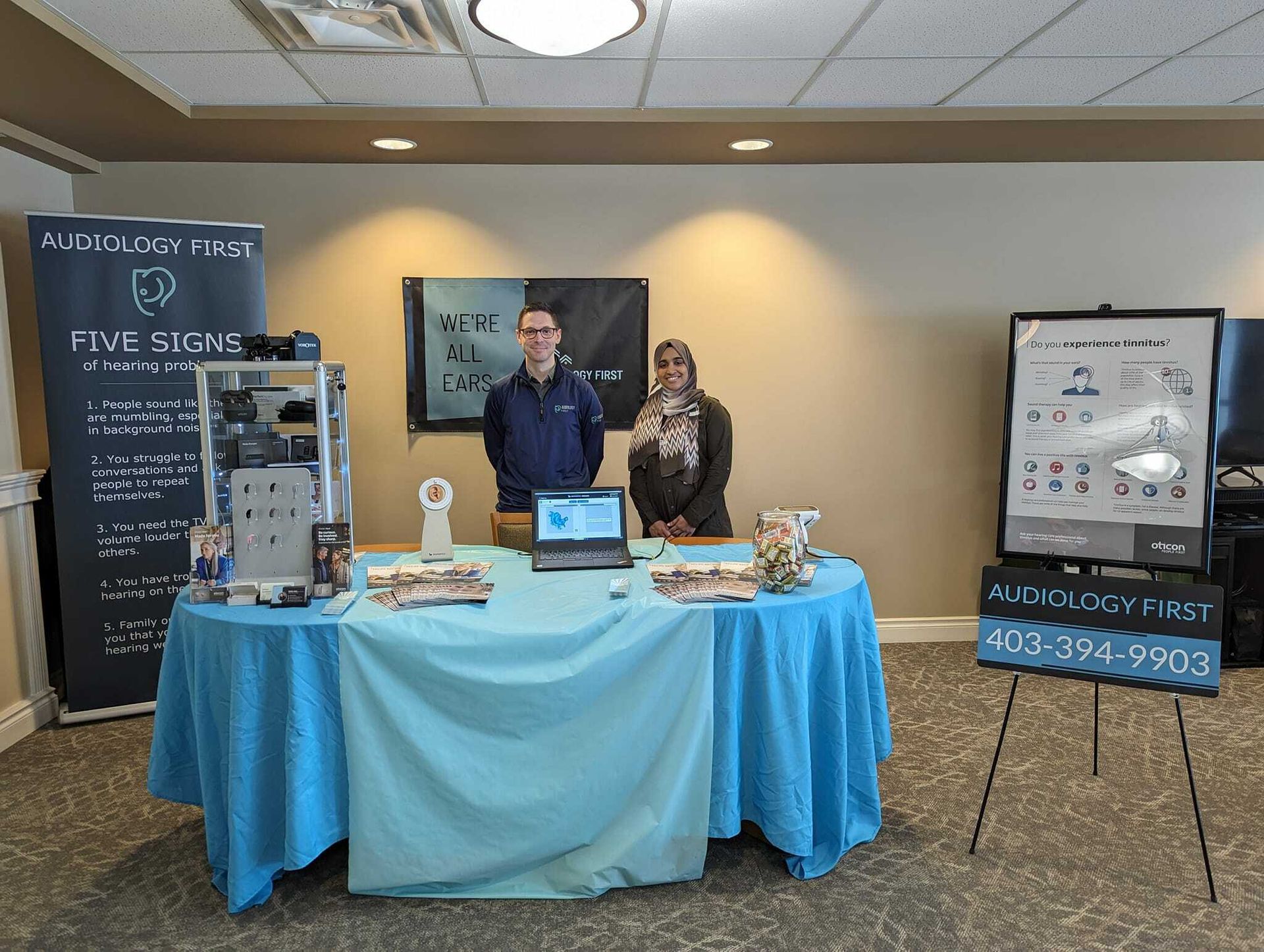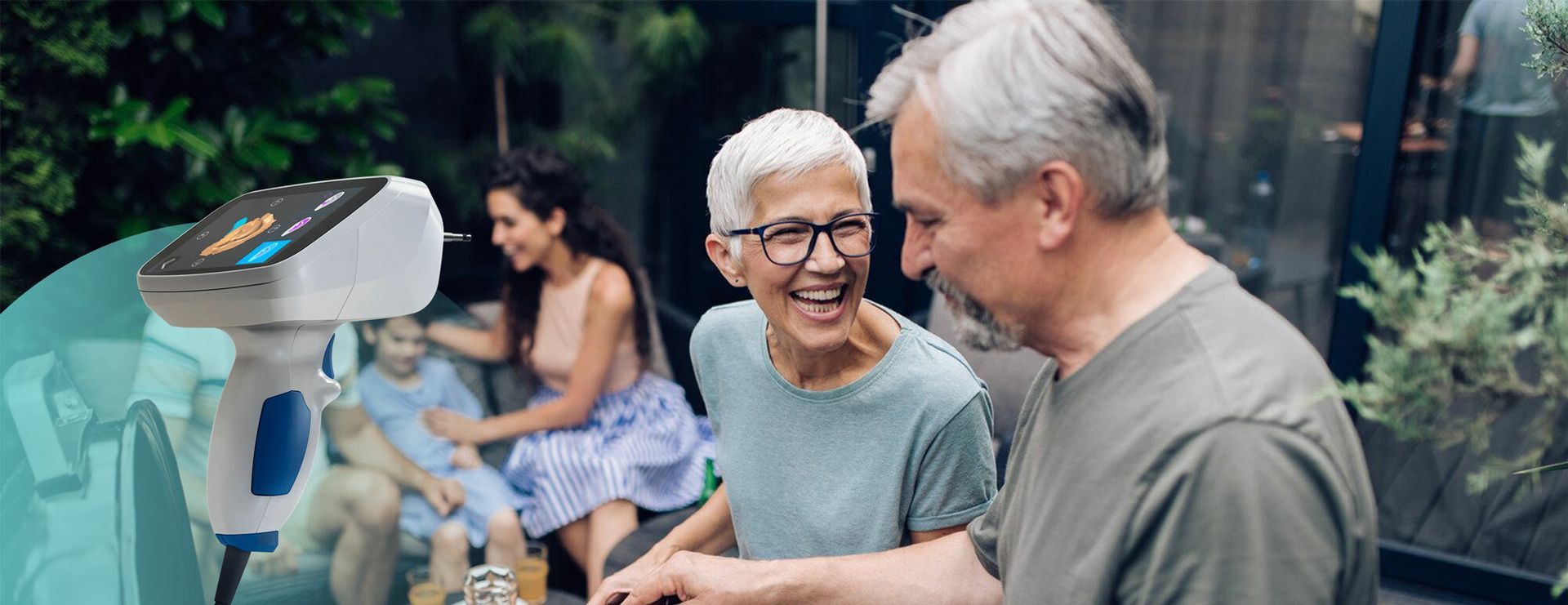Audiology First: The Link Between Hearing Loss & Dementia
It has been an honour for me to represent audiologists and hearing health here in Southern Alberta. On Thursday, May 9th, 2024, I had the opportunity to present to an enthusiastic crowd at an event organized by the Southern Alberta Council on Public Affairs. The topic was, “The Link Between Hearing Loss and Dementia”.
It took place at the Lethbridge Seniors Community Organization (LSCO), and was featured in The Lethbridge Herald. Around 100 people took the time to come and listen to me speak. If you or someone you love suffers from hearing loss, this information could be very valuable to you—here’s what we discussed.
Hearing Health in Southern Alberta
Hearing loss is a common problem among seniors, and it’s something that tends to worsen with age. Southern Alberta potentially has more noise-induced hearing loss cases than other areas throughout the province and across the country, mostly due to farming practices and other heavy, noise-polluted industries.
Through our research and daily practice here at Audiology First, we estimate that more than 28,000 people in the South Health Zone could benefit significantly from hearing aid use. However, only about 30% of those aged 70 and above have tried one.
If you are one of the many people in our area who has trouble hearing (approximately
40% of us will experience significant hearing loss in our later years), your brain is at additional risk of dementia and other memory-related problems. People with hearing loss are much more likely to have impaired memory function, and
other symptoms indicative of cognitive decline.
As an audiologist, it is my responsibility to ensure people with hearing problems are taken care of and looked after. I can help reduce your risk of memory loss, cognitive decline, and dementia—here’s how.
Dementia & Hearing Loss
Dementia can be a consequence of untreated hearing loss. The research on this is clear; here’s a summary of the literature for reference:
- 9% of all existing dementia cases may be associated with hearing loss.
- There is evidence for additional brain shrinkage in those with hearing loss compared to those without.
- Researchers have found markers for Alzheimer’s disease in people with hearing loss before any diagnosis of Alzheimer's has been made.
- Individuals with mild, moderate, and severe hearing loss had a two-fold, three-fold, and five-fold increased risk of developing dementia, respectively, compared to those with normal hearing of the same age.
- Even mild hearing loss is associated with a 19% increased risk of developing dementia over a 10-year period compared to those of the same age without hearing loss.
Field-Wide Consensus
Experts in dementia agree that hearing loss is one of the risk factors for dementia.
Experts have also said that some of our individual risk of dementia is difficult to pin down and a large percentage (some 60%) of our risk of developing dementia is not modifiable though lifestyle changes or by trying to make improvements to our health.
On the other hand, some of our lifestyle choices may affect our risk level for developing cognitive decline and dementia. This could be related to educational opportunities we received, how much exercise we get, our cardiovascular health, diabetes, alcohol intake, depression, and even obesity. Hearing loss is one of those risks that we can choose to treat or not. Hearing loss is described as a modifiable risk factor for dementia in the scientific literature, because there are treatments for hearing loss.
The theories linking Hearing Loss & Dementia
Deprivation from sound
Some scientists think that good communication, and high quality social interactions provides high levels of activity and processing through several areas of the brain, maintaining the complexity of the pathways involved in thinking our way through a conversation. Deprivation from sound suggests there is a cause and effect relationship between hearing loss and dementia; less interpersonal interaction may lead to fewer memory-forming interactions, less emotional engagement, and less brain exercise. Research shows that most people with hearing loss experience some level of social withdrawal and isolation, both of which are well-known risk factors of dementia. The brain loses what it does not use, decreasing the levels white matter in the brain that was previously being used to process sounds. A degree of dormancy in one area of the brain may influence the function of other brain areas. Fundamental changes to the brain structure itself may not influence whether dementia occurs, but it is thought that lack of use is what increases the risk of cognitive decline and dementia in some people. Not all people with hearing loss are at risk of total deprivation from sound, but some of the research seems to suggest that greater levels of hearing loss lead to worse rates of dementia.
Reduced 'Cognitive Reserve'
Some researchers have noted that hearing loss
Common cause theory
Other researchers feel that hearing loss and dementia happen simultaneously, from the same common cause.
Hearing Aids & Their Potential to Help
The most common and successful treatment for hearing loss is well-fitted hearing aids. These days, hearing aids are sleek, barely noticeable, ear-level devices with all the automation and convenience a person might need to make things easier. When properly and expertly fitted, hearing aids can reduce the risk of hearing loss-related dementia.
In one large study published in the Lancet in 2023, hearing aid use was associated with a
48% reduction in cognitive decline over three years compared to no hearing aid use at all. The evidence is, at this point, almost undeniable. We need to take action, and be preventative in the early stages of hearing loss to avoid these residual and highly disruptive issues.
Evidence-Based Hearing Aid Fittings
If you have hearing aids and are not currently using them, the clinic that provided them may not have followed the most up-to-date and best hearing care practices. Satisfaction with hearing aids can be quite low, likely due to the fact that only about 30% of hearing aids dispensed are fitted with evidence-based methods.
At Audiology First in Lethbridge, we will retune patients' hearing aids that were fitted elsewhere to help them hear better. We’re confident that we can make your hearing aid experience as seamless and natural as possible.
Audiology First: Hearing Care in Lethbridge & Southern Alberta
As Lethbridge's only independent audiology clinic, we are committed to following best practices and providing a level of care recognized province-wide. We fit every hearing aid with the brain in mind, and apply our own evidenced-based research to continually push the field forward.
There’s a big difference between all-inclusive hearing healthcare and a clinic that is simply selling hearing aids. Audiology First is that difference, and we always strive to provide our patients with the latest technology and treatment approaches.
If you need or wear hearing aids, we will ensure you get the most out of them. We will also retune hearing aids purchased elsewhere—at no charge.
Come visit us today at Audiology First to take back your hearing health and find the solution that is right for you.
References
Loughrey DG, Kelly ME, Kelley GA, Brennan S, Lawlor BA. Association of age-related hearing loss with cognitive function, cognitive impairment, and dementia: a systematic review and meta-analysis [published online December 7, 2017]. JAMA Otolaryngol Head Neck Surg. doi:10.1001/jamaoto.2017.2513 https://jamanetwork.com/journals/jamaotolaryngology/fullarticle/2665726
Dementia prevention, intervention, and care: 2020 report of the Lancet Commission
Gill Livingston, Jonathan Huntley, Andrew Sommerlad, David Ames, Clive Ballard, Sube Banerjee, Carol Brayne, Alistair Burns,Jiska Cohen-Mansfield,Claudia Cooper,Sergi G Costafreda,Amit Dias,Nick Fox,Laura N Gitlin,Robert Howard,Helen C Kales,Mika Kivimäki et al. The Lancet 8–14 August 2020 vol. 396 issue 10248 Licensed Content Pages 34 https://www.ncbi.nlm.nih.gov/pmc/articles/PMC7392084/
Marcos-Alonso, S., Almeida-Ayerve, C. N., Monopoli-Roca, C., Coronel-Touma, G. S., Pacheco-López, S., Peña-Navarro, P., Serradilla-López, J. M., Sánchez-Gómez, H., Pardal-Refoyo, J. L., & Batuecas-Caletrío, Á. (2023). Factors Impacting the Use or Rejection of Hearing Aids-A Systematic Review and Meta-Analysis. Journal of clinical medicine, 12(12), 4030. https://doi.org/10.3390/jcm12124030
Saunders GH, Lewis MS, Forsline A. Expectations, prefitting counseling, and hearing aid outcome. J Am Acad Audiol. 2009 May;20(5):320-34. doi: 10.3766/jaaa.20.5.6. PMID: 19585963. https://pubmed.ncbi.nlm.nih.gov/19585963/
Hearing intervention versus health education control to reduce cognitive decline in older adults with hearing loss in the USA (ACHIEVE): a multicentre, randomised controlled trial. Lin FR, Pike JR, Albert MS, Arnold M, Burgard S, Chisolm T, Couper D, Deal JA, Goman AM, Glynn NW, Gmelin T, Gravens-Mueller L, Hayden KM, Huang AR, Knopman D, Mitchell CM, Mosley T, Pankow JS, Reed NS, Sanchez V, Schrack JA, Windham BG, Coresh J; ACHIEVE Collaborative Research Group. Lancet. 2023 Jul 17:S0140-6736(23)01406-X. doi: 10.1016/S0140-6736(23)01406-X. Online ahead of print. PMID: 37478886 https://www.thelancet.com/journals/lancet/article/PIIS0140-6736(23)01406-X/abstract
Wang HF, Zhang W, Rolls ET; Alzheimer's Disease Neuroimaging Initiative; Li Y, Wang L, Ma YH, Kang J, Feng J, Yu JT, Cheng W. Hearing impairment is associated with cognitive decline, brain atrophy and tau pathology. EBioMedicine. 2022 Dec;86:104336. doi: 10.1016/j.ebiom.2022.104336. Epub 2022 Nov 7. PMID: 36356475; PMCID: PMC9649369. https://pubmed.ncbi.nlm.nih.gov/36356475/
https://publichealth.jhu.edu/2023/new-study-links-hearing-loss-with-dementia-in-older-adults
